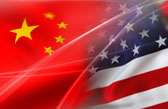Real estate investors buck barriers
By LIA ZHU in San Francisco (chinadaily.com.cn) Updated: 2016-06-20 13:29When international deals go bad, you can't always blame the language barrier.
Transactions of Chinese real estate investment in the US more often fail because of a difference in culture and expectations than because of a difference in language, experts said.
Real estate may be the most highly regulated and taxed asset class in the US and is considerably more regulated and taxed than in China, which can be challenging even to the most sophisticated and experienced investor, Alan Pomerantz, a senior counsel with Pillsbury Winthrop Shaw Pittman LLP, recently told a panel on Chinese investment in US real estate in San Francisco.
In addition to the regulations at the federal level, each state has different regulations that come in the form of ownership restrictions and environmental reviews. On the tax side, while there exists a tax treaty between the US and China, it generally does not apply to taxes imposed on profits by states, cities and counties.
"One of the barriers to entry in doing business in the United States for Chinese investors is failure to understand the nature of the laws of the United States when things turn not so good," he said.
"The problem is the market always goes down, it always has and it will again," said Pomerantz. "When it goes down what happens in China is banks and borrowers sit down and talk about it. In the United States, not only do they not do that, the law prohibits them from doing that."
"Chinese people do not use lawyers the way US people use lawyers," he added. "We'd like to say that in China the negotiation starts after the deal is signed; in the US, it's exactly the opposite."
It would be a "big, big surprise" for Chinese investors and their US partners, US construction companies and US banks if they were not aware of when there's a hiccup in the real estate market, Pomerantz said.
Chinese people believe the most important thing is the relationship and that guanxi, or relations, can fix almost anything, said Thomas Shoesmith, a partner at Pillsbury who leads the firm's China practice.







